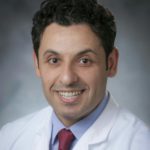Incorporating a geriatric assessment tool into the care of the geriatric cardio-oncology patient is crucial. The use of comprehensive geriatric assessments has been shown to improve overall survival, quality of life, and physical function, while decreasing hospitalizations and nursing home placement in the geriatric population. While cancer is the number one cause of mortality in patients between 60 and 79 years, heart disease is most common in people aged 80 and older. More than 40% of these cancer survivors above the age of 50 will develop cardiovascular (CV) disease. In general, older patients are affected by a number of factors, including concomitant comorbidities as well as other physiologic and functional changes that can affect prognosis, treatment, and outcomes of cancer.
Cancer therapeutics including traditional chemotherapy, targeted therapy, radiotherapy, and hormonal therapy all have short- and long-term systemic effects, often involving multiple organs. However, CV toxicities have been most concerning and can result in irreversible CV damage or reversible cardiac dysfunction. These cardiotoxic manifestations can include left-ventricular (LV) dysfunction and heart failure, myocardial ischemia and infarction, hypertension (HTN), and arrhythmias such as QT prolongation. Less frequently, these complications consist of myocarditis or pericarditis.
Anthracycline-induced cardiotoxic effects are dose dependent, and those who develop late cardiotoxicity have a high mortality. Risk factors include cumulative dose, bolus administration, high single dose, prior radiotherapy, simultaneous use of other cardiotoxic agents, female gender, bimodal age distribution, existing CV disease, elevation of cardiac biomarker during and after cancer treatment, as well as time since completion of cancer therapy. A second class of frequently used cardiotoxic agents are targeted therapies including monoclonal antibody-based tyrosine kinases (bevacizumab, trastuzumab) and small molecule tyrosine kinase inhibitors (sorafenib, sunitinib, lapatinib). HTN is a common adverse event whose mechanism is not well understood but has been attributed to the inhibition of vascular endothelial growth factor. Progression of or acceleration of ischemic disease is more common with radiation therapy Agents such as bleomycin, etoposide, cisplatin, 5-fluorouracil have been implicated in the development of myocardial ischemia including myocardial infarction.
Risk factors for chemotherapy-related cardiac complications should be assessed in all patients diagnosed with cancer who are being considered for cancer therapy, whether it be the administration of biologics, chemotherapy, or radiation therapy. Given that advancing age has been associated with cardiac complications from chemotherapy using anthracyclines or trastuzumab-based treatments, it is recommended that all elderly patients prescribed these medications should be educated about risk stratification and risk modification. Risk stratification remains difficult in elderly patients at risk for cardiotoxicity. A comprehensive evaluation of CV comorbidities such as HTN, diabetes, dyslipidemia, and smoking needs to be evaluated prior to start of therapy.
Those patients receiving high-dose anthracyclines, high-dose radiation, and history of prior cardiac disease are at greatest risk for cardiac dysfunction are at highest risk for cardiotoxicity. Cancer-specific mortality is often higher in older patients, likely due to the impact of age-related factors. Pre-treatment evaluation of LV systolic function is a standard part of many treatment protocols. However, the utility of this approach has been debated due to a low prevalence of asymptomatic LV systolic dysfunction, with this strategy missing most patients that will ultimately have cardiotoxicity. Serum biomarkers may be useful in predicting cardiotoxicity and the role of baseline assessment of serum biomarkers prior to cancer treatment in predicting cardiotoxicity is being evaluated. An echocardiogram is the most important tool for serial evaluation of the heart during cancer therapy. Ejection fraction should be determined using biplane method of discs, according to the American Society of Echocardiography guideline. Current recommendations for imaging surveillance include monitoring of LV systolic function during treatment with both anthracyclines and trastuzumab. Current National Comprehensive Cancer Network guidelines suggest cardiac monitoring at baseline, 3, 6, and 9 months after initiating therapy for trastuzumab therapy, upon completion of treatment, and every six months for 2 years following completion of treatment.
Collaborative assessment by oncologists, cardiologists and geriatricians before the start of chemotherapy can lead to early identification of patients at risk as well as discussions about the utility and benefits of cardiotoxic medications as opposed to potential alternative therapies. In some situations, alternative noncardiotoxic chemotherapy regimens may be considered. A lower-intensity chemotherapy regimen, however, should not be prescribed based simply on a patient’s risk factors or concern for potential cardiac complications, as this has been shown to potentially worsen clinical cancer outcomes. Cardiologists and oncologists may be less familiar with and often have limited to no training in routinely performing geriatric assessments and systematically evaluating for frailty. Within the gericardio-onc collaborative framework, the geriatrician is well positioned to take an active leadership role in advocating for the patient, assisting with decision-making, and facilitating screening and long-term monitoring of CV complications.
Cardiac dysfunction developing during or after the completion of cancer therapy is a growing heath concern that should be addressed in a multidisciplinary setting. There is a need for research on early biomarkers of toxicity as well as monitoring, surveillance, and treatment of older patients with cancer receiving potentially cardiotoxic therapy. The results of several studies are imperative in determining how best to risk-stratify and treat elderly patients with cancer while preserving their quality of life and functional outcomes.

Dr. Fawaz Abdulaziz M Alenezi is a post-doctorate associate at the Duke University Health Systems. He conducts medical research on the derivation and validation of novel echocardiographic approaches to myocardial deformation and a new echocardiographic technique which assists patients with heart ventricular function.